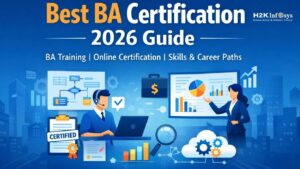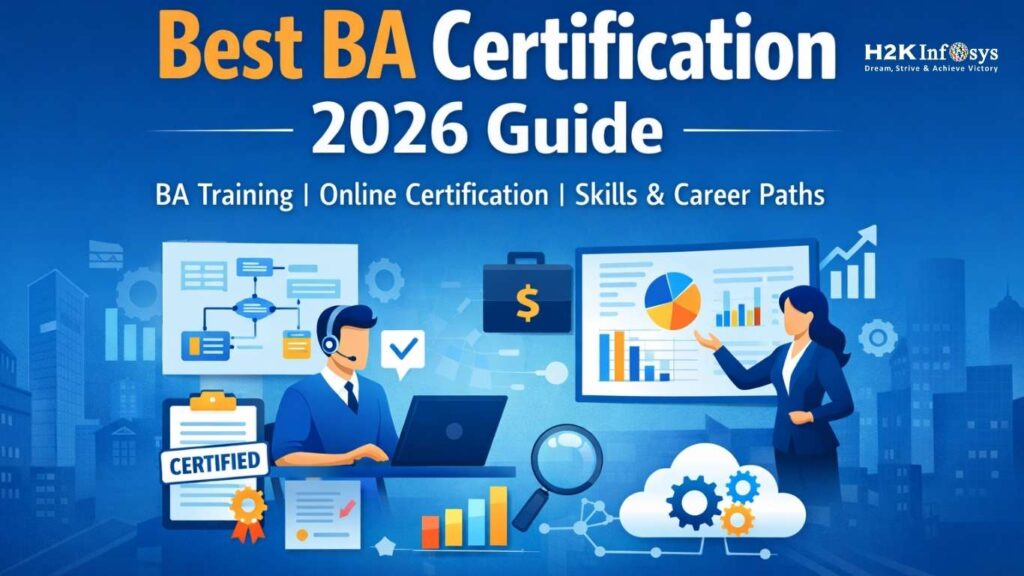In today’s digital landscape, the role of a Salesforce Admin has become increasingly crucial across industries, including big tech companies, financial services, healthcare, and retail. As businesses increasingly rely on customer relationship management (CRM) systems to streamline their processes and improve customer engagement, the demand for skilled administrators has soared. Becoming a Salesforce Admin offers a rewarding career path with ample opportunities in a variety of sectors.
This guide will walk you through the steps needed to become a Salesforce Admin, how to earn your Salesforce Administrator Certification, and the exciting opportunities available in big tech and other industries.
The Role of a Salesforce Admin
Salesforce Admins play a key role in managing and optimizing CRM systems. They ensure that these platforms are tailored to meet the specific needs of the organization and its users. Their responsibilities range from configuring system settings to automating workflows and managing data integrity. Essentially, Salesforce Admins serve as the bridge between technology and business operations, ensuring that customer data and business processes run smoothly.
Primary Responsibilities of a Salesforce Admin:
- Managing user permissions, security settings, and profiles
- Configuring and customizing CRM systems for optimal use
- Automating processes using workflows and approval rules
- Generating reports and building dashboards for business insights
- Ensuring the accuracy and security of data across the platform
- Providing user training and ongoing support
As businesses increasingly rely on CRM systems, the need for skilled admins in sectors like big tech, finance, healthcare, and retail has grown.
Step 1: Understand the Basics of CRM Systems
Before starting your journey to becoming a Salesforce Admin, it’s essential to familiarize yourself with CRM systems. These platforms help businesses manage customer relationships, track sales leads, automate marketing, and provide customer service. Learning about the key features of CRM platforms—such as sales pipelines, marketing automation, and customer service tools—will give you a solid foundation.
CRM systems are designed to be flexible, allowing businesses to customize the platform to suit their unique needs. Understanding how companies leverage CRM to improve efficiency, manage data, and enhance customer satisfaction will help you navigate your future role.
Step 2: Enroll in Admin Training Programs
Once you’ve familiarized yourself with the basics of CRM systems, the next step is to invest in a structured learning program. Many online training platforms offer free and paid courses designed to teach the fundamentals of CRM administration. These programs cover everything from setting up user profiles to configuring workflows and managing security settings.
Many of these courses are self-paced, allowing you to learn on your schedule. Whether you opt for free tutorials or comprehensive boot camps, make sure the program covers the core concepts required for a Salesforce Admin role, such as user management, process automation, and data management.
Step 3: Gain Practical Experience with CRM Platforms
While completing training is an important step, hands-on experience is key to mastering the skills needed to become a successful Salesforce Admin. Here’s how you can gain real-world experience:
- Use Free Developer Accounts: Many CRM platforms offer free accounts that allow you to experiment with platform features. This will enable you to practice configuration, create custom apps, and build workflows in a safe, hands-on environment.
- Volunteer for Small Businesses or Nonprofits: Many organizations use CRM systems but lack the resources for a full-time admin. Volunteering your services can give you the opportunity to manage a live system and solve real-world challenges, building your experience while helping a cause.
- Participate in Online Communities: There are vibrant communities of CRM professionals where you can join discussions, share your experiences, and seek advice from seasoned admins. These forums are a great way to expand your knowledge and stay updated on the latest CRM trends and updates.
Step 4: Prepare for the Salesforce Administrator Certification
Earning the Salesforce Administrator Certification is a crucial milestone that validates your skills and sets you apart as a qualified professional. The certification exam tests your knowledge of platform administration, configuration, and customization. Here are the key steps to prepare for your certification:
- Study the Exam Guide: The certification exam is structured around several core topics, including user management, system security, reporting, automation, and data management. Reviewing the exam guide will give you a clear understanding of the topics and areas to focus on during your preparation.
- Take Practice Tests: Practice exams are a great way to familiarize yourself with the test format and identify any gaps in your knowledge. Many online platforms offer mock exams that simulate the real certification test, helping you build confidence before the actual exam.
- Join Study Groups: Participating in study groups can provide additional support and resources as you prepare for the exam. Discussing topics with peers and sharing insights can deepen your understanding of key concepts.
- Hands-On Practice: As part of your exam preparation, continue gaining hands-on experience by managing user accounts, building reports, and automating workflows in a test environment. Practical experience is crucial for mastering the platform’s core features and passing the exam.
Step 5: Earn Your Salesforce Administrator Certification
Once you’ve completed your training and gained practical experience, it’s time to sit for the Salesforce Administrator Certification exam. The certification is designed to test your ability to manage and optimize a CRM system in a business environment. Passing the exam not only validates your expertise but also opens doors to a wide range of career opportunities.
Certified Salesforce Admin are highly sought after in industries like technology, healthcare, finance, and retail. Big tech companies, in particular, are always on the lookout for certified professionals who can help them manage their complex CRM systems and drive business efficiency.
Step 6: Explore Career Opportunities Across Industries
Once you’ve earned your certification, the career opportunities are vast. As a certified Salesforce Admin, you can pursue roles in a variety of industries that heavily rely on CRM systems to manage their customer data and business operations. Let’s take a closer look at some key sectors where Salesforce Admins are in high demand:
1. Big Tech
Tech giants like those in Silicon Valley are constantly hiring Salesforce Admins to manage their vast customer databases and ensure efficient workflow automation. The role of a CRM admin in these companies often involves configuring the platform for large-scale operations, creating detailed reports, and integrating the system with other enterprise applications.
2. Financial Services
Financial institutions use CRM systems to track client interactions, manage relationships, and comply with regulatory requirements. As a Salesforce Admin, you’ll help financial organizations optimize their systems to ensure smooth operations, handle sensitive data securely, and improve customer engagement.
3. Healthcare
The healthcare industry uses CRM platforms to manage patient information, schedule appointments, and track healthcare-provider interactions. Salesforce Admins in healthcare are responsible for configuring the platform to meet HIPAA requirements, ensuring data security, and providing easy access to patient data for healthcare professionals.
4. Retail
Retail companies use CRM platforms to manage customer relationships, track sales leads, and enhance the customer experience. As a Salesforce Admin in retail, your job would be to optimize the system for marketing, sales, and customer service functions, ensuring a seamless customer journey.
Step 7: Continuous Learning and Growth
Technology is constantly evolving, and the role of a Salesforce Admin is no exception. Staying current with platform updates, new features, and best practices is critical for long-term success. Regularly engage in continuing education, attend webinars, participate in CRM events, and join user groups to stay up-to-date with industry trends and developments.
Conclusion: Launch Your Career as a Salesforce Admin
Becoming a Salesforce Admin is a rewarding journey that offers significant career opportunities in various industries, from big tech to healthcare. By following these steps—understanding the role, enrolling in training, gaining hands-on experience, earning your Salesforce Administrator Certification, and exploring opportunities across industries—you’ll be well-equipped to succeed in this fast-growing field.
Whether you aim to work in big tech or any other industry that relies on CRM platforms, Salesforce Admins are indispensable in helping businesses optimize their customer interactions and improve overall efficiency. Start your journey today and unlock a world of career opportunities.





























One Response